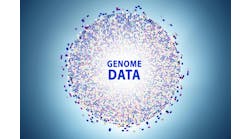Three academic medical centers have been awarded an $8.5 million, five-year grant from the National Institutes of Health (NIH) to study the role of genetics in neuropsychiatric disorders, including autism spectrum disorder, schizophrenia, and bipolar disorder.
Pennsylvania-based integrated health system Geisinger was awarded the grant with the University of Washington in Seattle and Washington University in St. Louis. The project is one of five funded through the National Institute of Mental Health’s newly established Mental Health Rare Genetic Disease Network (MHRGDN), which includes researchers at 15 sites across the United States.
Researchers from the 15 sites in the MHRGDN network will recruit patients with known genetic causes of neuropsychiatric disorders. They will then conduct in-depth genomic and clinical assessments of patients and their family members to explore the impact of genetics on neuropsychiatric disorders. The standardized data will be made available to research facilities throughout the country through the National Institute of Mental Health to accelerate further research.
Geisinger’s grant is co-funded by the Eunice Kennedy Shriver National Institute for Child Health and Human Development. Geisinger’s primary investigators are Christa L. Martin, Ph.D., associate chief scientific officer and director of Geisinger’s Autism & Developmental Medicine Institute, and David H. Ledbetter, Ph.D., Geisinger’s executive vice president and chief scientific officer.
The main genetic changes to be studied are copy number variants (CNVs) of 1q21.1, 16p11.2, 15q13.3, 22q11.2, and those involving the CHD8 gene. “Our understanding of the genetic causes of neuropsychiatric disorders is growing every day, but we still have a lot to learn,” said Dr. Martin, in a prepared statement. “We can now identify a genetic cause in up to 40 percent of children with neuropsychiatric disorders. This study will gather detailed descriptions of the clinical symptoms of these individuals to discover how to improve their medical care and outcomes.”
Geisinger’s MyCode Community Health Initiative is one of the largest healthcare system-based precision health projects in the world. With more than 245,000 volunteer participants enrolled and over 145,000 sequenced, MyCode is conducting extensive research and returning results to participants.

